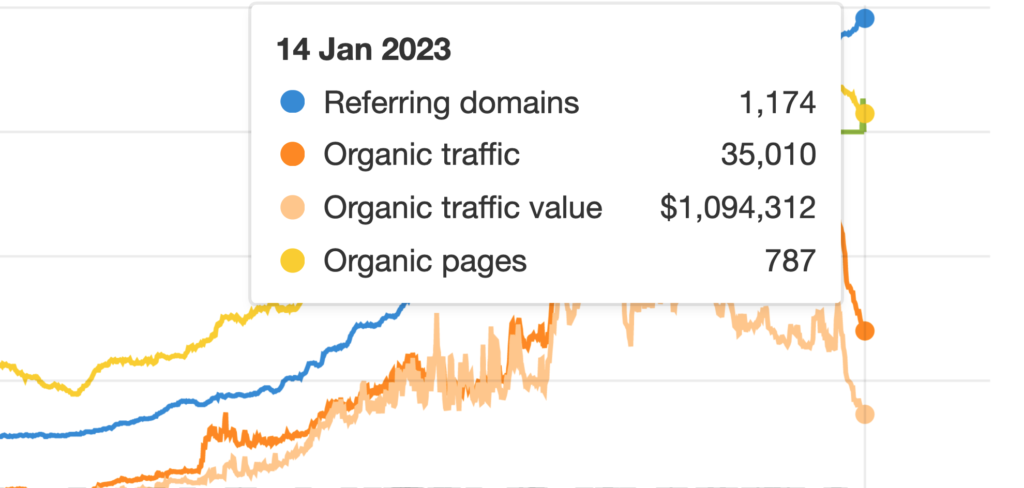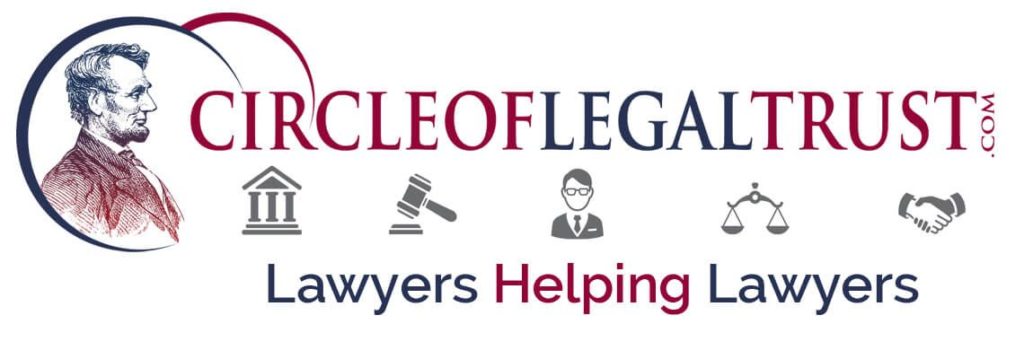Can a Florida Lawyer Pay a Referral Fee to an Out-of-state Attorney?

An attorney referral fee is a complex topic. Many attorneys try to avoid becoming part of the referral system as it can cause harm to them and their business if they don’t follow the rules governing referral fees. It gets even more complex if an out-of-state attorney gets involved.
Circle of Legal Trust has created this guide to help you understand whether a Florida lawyer can pay an out-of-state attorney a referral fee.
Who Is an Out-of-state Attorney?
In the context of this article, an out-of-state attorney, also referred to as a foreign attorney, is an active member of the state bar (not Florida) with good standing, can practice law in a state other than Florida, and is not licensed in Florida.
How to Split an Attorney’s Fee?
The American Bar Association Model Rules of Professional Conduct provides a general guideline pertaining to splitting legal fees between attorneys, but when it comes to paying an attorney outside of Florida, the state rules apply.
Rule Regulating the Florida Bar, especially Rule 4-1.5(g), is the main rule that applies to referral fees. It states attorneys can only give referral fees if the total fee is reasonable.
Rule 4-1.5(g) provides further guidelines, which include the following:
- The fee division should be proportional to the legal services offered by each lawyer, or
- The division of legal fees is written down in an agreement with the client, which should include the following:
- Each lawyer assumes joint responsibility, and they should both be available for consultation if the client requires
- The division of the legal fees and the basis on which they should be made
Most personal injury attorneys work on a contingency fee basis, and if that is the case, Rule 4-1.5(f) will apply.
Should the Client Consent to the Referral Agreement in Writing?
Under Rule 4-1.5(f)(2), the client must provide their consent for a contingency fee case in writing.
Each attorney or law firm part of the referral agreement must sign the contract with the client. In doing so, the attorneys involved in the referral agreement will act as partners and assume joint legal responsibility for the case.
How Much Can an Attorney Charge for Referring a Case?
Typically, 30% of the legal fee is the standard in the legal industry for referring cases. However, this may vary depending on the state.
In Florida, under Rule 4-1.5(f)(4)(D), the referring attorney cannot receive more than 25% of the legal fees for personal injury cases (including wrongful death) unless otherwise stated by the court.
The abovementioned rules apply to members of The Florida Bar, and under Rule 4-5.4(a), Florida lawyers cannot pay referral fees to out-of-state attorneys.
However, Professional Ethics Committee stated that a Florida attorney could share fees with an out-of-state lawyer in certain circumstances.
When Can a Florida Attorney Share Legal Fees with an Out-of-state Attorney?
The Florida Bar Ethics Opinion 90-8 provides detailed information on the scenarios where it is ethical for Florida lawyers to pay referral fees to an out-of-state attorney.
Let’s go over some of the scenarios to understand what is ethical.
It’s Unethical to Pay an Out-of-state Attorney Referral Fees If They’re Residing in Florida
Suppose another state’s bar member resides in Florida, a client approaches them for legal help, and the attorney refers the client to a Florida lawyer. In such a situation, it is unethical for the Florida attorney to share legal fees with the referring lawyer.
Opinions 60-18 and 62-3 apply to the above scenario, where the committee concluded that since the out-of-state attorney is not a member of the Florida Bar, they cannot legally practice law in Florida.
A Florida law firm or lawyer paying the out-of-state attorney residing in Florida is unethical as they are aiding the unauthorized practice of law.
In Opinion 62-3, the committee stated that it is unethical for a Florida lawyer to divide the legal fees with an out-of-state attorney as it is impossible to assume joint legal responsibility or legitimately divide the legal services.
It’s Ethical for a Florida Attorney to Pay Out-of-state Lawyer Legal Fees for Referring an Out-of-state Client
Suppose an out-of-state client reaches out to an out-of-state attorney over criminal matters in Florida. The out-of-state attorney refers the client to a Florida attorney. In such cases, it is ethical for the Florida lawyer to pay attorney referral fees to the out-of-state attorney.
Since it is a criminal case, Rule 4-1.5(g) applies to this scenario. The Florida lawyer may pay attorney fees to the out-of-state lawyer according to the services performed or as per the written agreement signed by the client.
An out-of-state attorney in this situation may be able to provide some legal services to the out-of-state client, which makes it ethical for the Florida lawyer to divide legal fees with them for the services performed.
It’s Ethical for a Florida Attorney to Pay Out-of-state Attorney for Case Referrals Involving Contingency Fees
Suppose an out-of-state resident suffers injuries in Florida and they consult an attorney in their home state for legal advice, who refers the client to a Florida lawyer who takes cases on a contingency fee basis. In such a scenario, it is ethical for a Florida attorney to pay the out-of-state lawyer under Rule 4-1.5(f).
The referring attorney can receive no more than 25% of the legal fees for referring the case, and the client must agree to the referral fee agreement in writing.
It’s Ethical for a Florida Attorney to Receive a Referral Fee for Referring a Case That Needs to Be Prosecuted in Foreign Jurisdiction
Suppose a Florida attorney refers a client to an out-of-state attorney to prosecute the case in a foreign jurisdiction, but that jurisdiction permits 50% referral fees.
The Florida attorney referring the case must comply with Rule 4-1.5(g) or Rule 4-1.5(f) if it is a contingency fee case. If the Florida attorney follows the division rules, it is ethical for them to divide the fee with an out-of-state attorney.
The maximum 25% referral fee for the referring attorney will apply to the Florida attorney. However, opinion 88-10 provides further guidance on this.
If there is an out-of-state trial case on a contingency fee basis, and it involves an out-of-state attorney seeking some assistance from a Florida lawyer for an out-of-state client, the rules of the state that has a significant relationship with the client will apply to the fee division.
If the rules permit more than a 25% referral fee, it is ethical for the Florida attorney to receive such a payment.
Does an Oral Referral Fee Agreement Stand Valid?
In the case, Marcus v. Garland, Samuel Loeb, P.C., the Florida Court stated that the alleged referral fee agreement was not enforceable since it was not in writing and the attorney did not communicate the agreement to the client.
The attorneys must comply with the referral fee rules as non-compliance can lead to the Florida attorney promoting an unlicensed practice of law by the out-of-state lawyer.
Should the Referring Lawyer Be on the Referral Fee Agreement?
If the division of the fees is ethical, the referring attorney needs to ensure they are on the fee contract and the Statement of Client’s Rights. Suppose the other lawyer tells you they will pay you at the end of the case or that you don’t need to be on the contract and should trust their word. These are red flags, and you should not take their word.
If you’re receiving a case, it is essential to ask the referring lawyer whether they’ll add you to the closing statement. In case of a recovery, the attorney must include all the costs and expenses in the closing statement, with the division of the legal fees.
Under the Statement of Client’s Rights, the client has the right to view and approve the closing statement before disbursing any money. Without the client’s approval of the closing statement, the representing attorney cannot disburse any payments to the lawyer or law firm, the client, and any other party involved unless the court passes an appropriate order.
Besides the client, all attorneys involved in the case must sign the closing statement. It is against the Florida Bar rules if one attorney refuses to include the other on the closing statement.
There are two major reasons why an attorney should include themselves in all three documents, referral fee agreement, Statement of Client’s Rights, and the closing statement. First, it is unethical and against the rules of the Florida Bar, and second, the attorney may refuse to pay the referring lawyer or law firm the referral fee.
It is important for the referring attorney to discuss passing on the case to the appropriate attorney with the client, draw up a referral fee contract/agreement and have the client view it. The client must consent to the agreement for it to be valid.
Circle of Legal Trust – The Largest Attorney Referral Network
We at Circle of Legal Trust are the largest attorney referral network with reputable attorneys working together and providing legal counsel on out-of-state cases. Our attorneys comply with state Rules of Professional Conduct, pay referral fees, and provide regular case updates to ensure all parties remain updated.
Contact us if you want to learn more about referral fees or find a reputable attorney to refer a case to.
We understand that many lawyers avoid getting involved in referral cases due to their complexity, but our attorneys know and comply with state laws, ensuring an ethical procedure.
Let’s work together to ensure justice and build a strong referral network!


